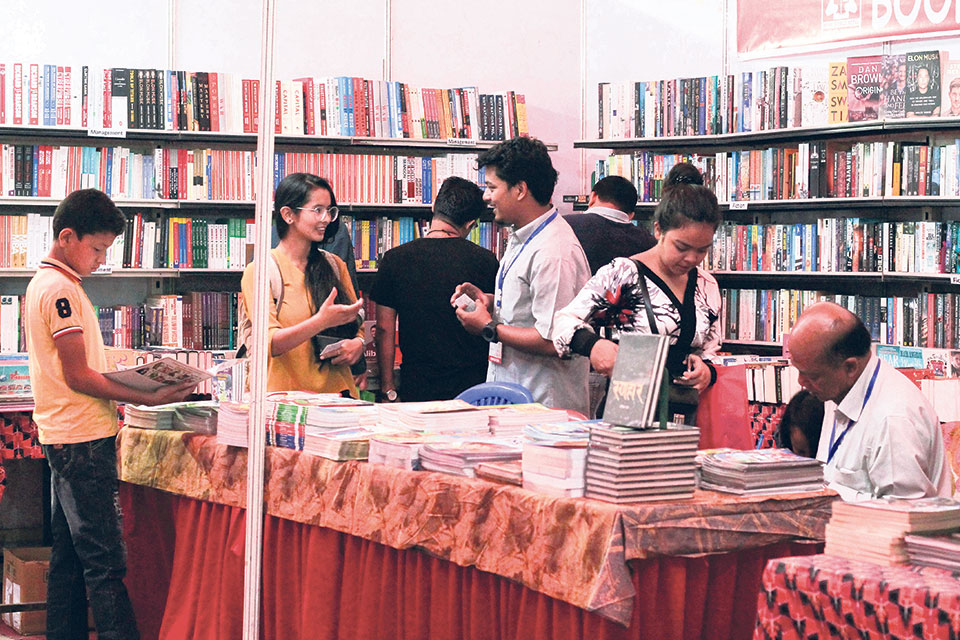CEO of Miss World Julia Morley talks about her COVID-19 speculation
4 years ago
_20200311200327_20200312135245.jpg)
4 years ago

4 years ago

4 years ago

A panel discussion entitled ‘Rethinking Educational Accountability’ was held at Bhrikutimandap Exhibition Hall on Saturday. The program was organized as a part of Nepal International Book Fair, by Global Exposition Management. A panel discussion was organized in collaboration between Canopy Nepal and Daya Foundation as a part of ‘Understanding Education’ in the same event.
Lecturer of Tribhuvan University (TU), Dr Pramod Bhatta, Joint Secretary of Ministry of Education, Dr Hari Prasad Lamsal, and Educationalist, Dhananjay Sharma Adhikari were present in the event as the panelist. Yangki Sherpa moderated the panel discussion. During the event, the panelists discussed about educational accountability in Nepal. They also discussed the possible measures that could be taken to improve the quality of education across the country.
Speaking in the event, Niraj Kunwar, childhood education and teaching experience specialist from CUNY (City University of New York) mentioned that there were lots of aspects responsible for improving the quality of education. Kunwar also emphasized on the role of teachers to improve the quality of primary education. He said, “It totally depends on teachers --how they interact with students, and how they grasp the attention of kids toward the study. As different people are responsible for a quality education, principal of the school should monitor the work nature of teachers and other prefects.”
Replying to his reaction, seasoned educationalist Dhananjaya Sharma Adhikari added, “Though teachers are the main pillar of educational institutes, teacher management is the main weakness of community schools. Including the principal, everyone related to the education system is equally responsible for the quality of education. There must be a good coordination between parents, headteacher, teachers, and students.” He further explained that there must be motivation, promotion, and rewards for teachers as they have huge a responsibility of controlling the mass of students and providing them a quality education.
Another panelist, lecturer of sociology at the central department of sociology, Tribhuvan University (TU), Dr Pramod Bhatta spoke about the necessity of a teacher’s qualification criteria. Similarly, he complained that he didn’t notice the concerned authorities monitoring the quality of teachers in community schools. Agreeing to Bhatta, Hari Prashad Lamsal replied, “Monitoring the work of teachers is necessary, but it is not implemented in present context of Nepal.
When asked about the political influence in educational institutes Sharma answered, “Yes, there are political interferences in educational institutes. There are different educational committees which are directly or indirectly related to political parties. That’s why the government should take an action plan to eradicate this unusual trend of supporting political parties by teachers. Then we will be able to provide quality education to students.”
The organizer of the event, Canopy Nepal, works to promote interactive learning and provide quality education. The organization strongly advocates for the need of productive dialogue and also discourses taking bigger strides while reshaping the education system. Similarly, Daya Foundation also works to promote quality education in Nepal. The foundation has partnered with various educational institutes of Kathmandu broaden the scope of knowledge, and skills and also share educational resources with community schools.
Leave A Comment